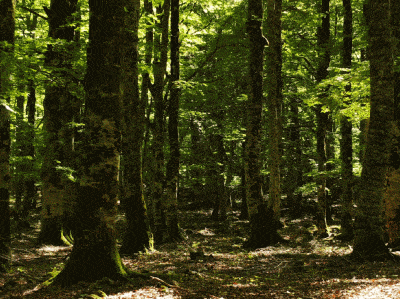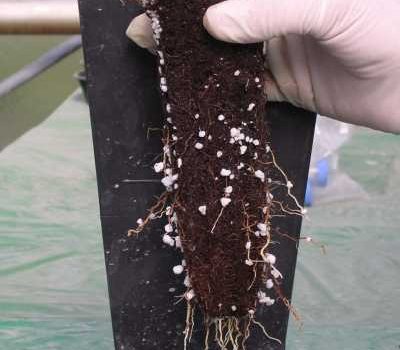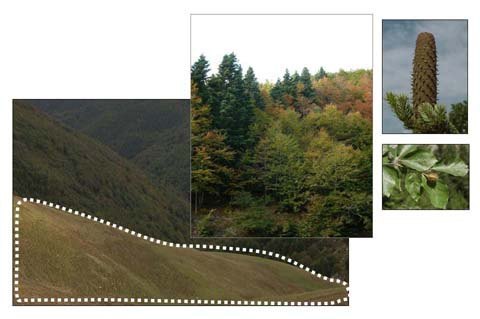
Results of the RODALES SELECTOS project available at ECOGESFOR.ORG
The RODALES SELECTOS Project is a research work focused on the ecologically based characterization of the physical environment (climate and soil) of the selected stands of mountain species included in the National Catalog of Base Materials. Managed by the General Directorate of the General Directorate of Rural Development and Forestry Policy of the Ministry of Agriculture, Food and Environment (MAGRAMA), in collaboration with the Autonomous Communities, it is the official registry of all types of base materials for obtaining the different categories of plant reproductive material.
The selected stand is a unit of admission of the catalog considered as forest reproductive material of the selected category, physically responding to forest territories in which collected material is especially appropriate for reproduction. It corresponds, therefore, to an arboreal forest mass, of relatively homogeneous composition, and whose feet present phenotypic characteristics higher than the average, in no case unfavorable for forestry.
The results obtained to date in this line of work have been incorporated into the following documents, individualized for each of the mountain species that as of January 1, 2014 are included in the Catalog:
Physical Medium of Selected Stands of Abies alba Mill.
Physical Medium of Selected Stands of Fagus sylvatica L.
Physical Medium of Selected Rodales of Pinus sylvestris L.
Physical Medium of Selected Rodales of Pinus uncinata Mill.
The ecological information provided in them is intended to be a useful reference for evaluating the degree of ecological homologation of locations of potential use of the restocking material collected in the selected stands of the referred mountain species, an area that is particularly sensitive to the probable effects of climate change on plant response.
The implementation and development of this research task has been possible thanks to the collaboration of the Biodiversity Foundation, through its program of granting aid under a competitive competition scheme for the year 2012, and has had the support institution of the aforementioned General Directorate, as well as that of the Spanish Climate Change Office, both from MAGRAMA.



